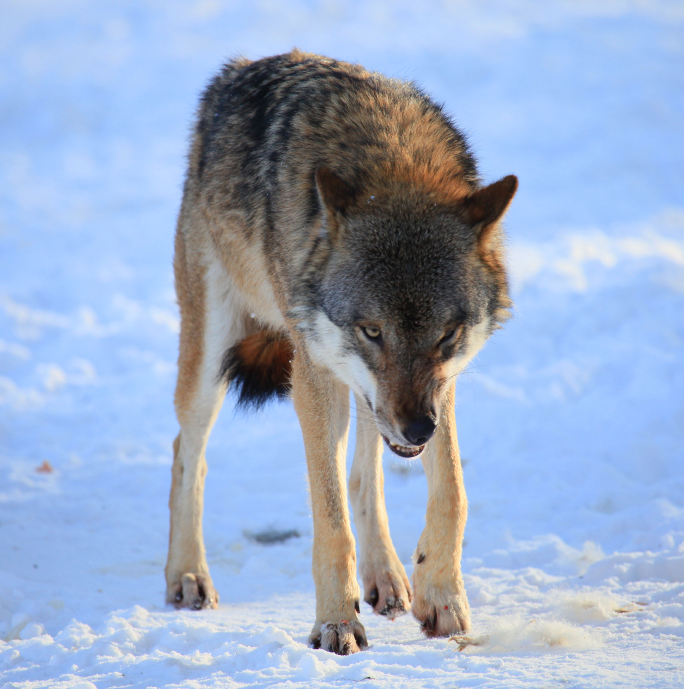Wolves shot amid “exceptional number” of backyard sightings in Western Finland

Game officials hope that two recent shootings of wolves will discourage the animals from making such frequent incursions into heavily populated areas. There are several wolf packs roaming Northern Ostrobothnia, between Vaasa and Oulu.
Most of Finland’s estimated 200 or so wolves live in northern and eastern parts of the country, but there are small but growing populations in the south and west as well.
Some residents of Northern Ostrobothnia, between Vaasa and Oulu in western Finland, are increasingly worried about wolves encroaching into residential areas.
Since last autumn, there have been more than 100 reports of wolves intruding in people’s yards in the municipalities of Kalajoki, Ylivieska and Sievi. The Kalajoki Valley region is home to several wolf packs.
The figures are based on data collected by the Natural Resources Institute Finland (Luke).
During the winter, two wolves have been shot under special permits, with the most recent on the border of Ylivieska and Sievi last weekend. Within the last couple of years, four wolves have been killed under such permits. They have been granted by local police in cases of repeated visits to yards and preying on sheep and cattle. All the individuals shot have been healthy.
“Visits on a nearly-daily basis”
According to the Finnish Wildlife Agency, such frequent appearances near homes are quite rare.
“Before last weekend’s shooting, the animals were visiting people’s gardens on a nearly-daily basis,” says Keijo Kapiainen, the agency’s game manager for the Oulu region.
“More than 100 visits to yards is an exceptionally large number,” he adds.
Kapiainen says there is no single clear reason for the local wolves’ fearlessness around human habitation. He does not believe it is primarily driven by the search for food.
“Maybe the wolves’ territory has been formed in a settled area. In that case animals just move around wherever their territory is. There is a similar situation in a heavily-populated area of south-western Finland, where the number of yard visits has also risen. On the other hand, one reason may be habituation to humans, since there have been so many sightings in the area,” suggests Kapiainen.
Rare forest reindeer return
The Kalajoki Valley region includes some densely-populated parts, but also stretches of wilderness, which originally attracted the large canines into the area.
At least one municipality in the area has considered it necessary to arrange special transport for schoolchildren due to the fear of wolves. However Kapiainen expects the situation to calm down now.
“We’re keeping an eye on the wolves’ movements. Of course we hope that these culls will have an impact,” he tells Yle.
There is also a healthy wolf population in Pedersöre, some 100km to the south-west. Local game officials said last week that a herd of some 40 rare Finnish forest reindeer has moved into the municipality. This large, threatened subspecies of reindeer has not been seen in the area since the 1780s. They are believed to have spread from Perho to the south-east, where a small number were released into the wild in the 1980s.
Related stories from around the North:
Canada: More Grizzlies and wolves moving north to High Arctic, Radio Canada International
Finland: Flash, bang – no more wolves at the door in Finland, Yle News
Norway: Pet passports needed between Sweden and Norway, Radio Sweden
Russia: Are wolves from illegal Russian kennel in Finland?, Yle News
Sweden: More wolves can be culled after Supreme Court decision, Radio Sweden
United States: U.S. House lifts restrictions on predator hunting in Alaska refuges, Alaska Public Radio Network



